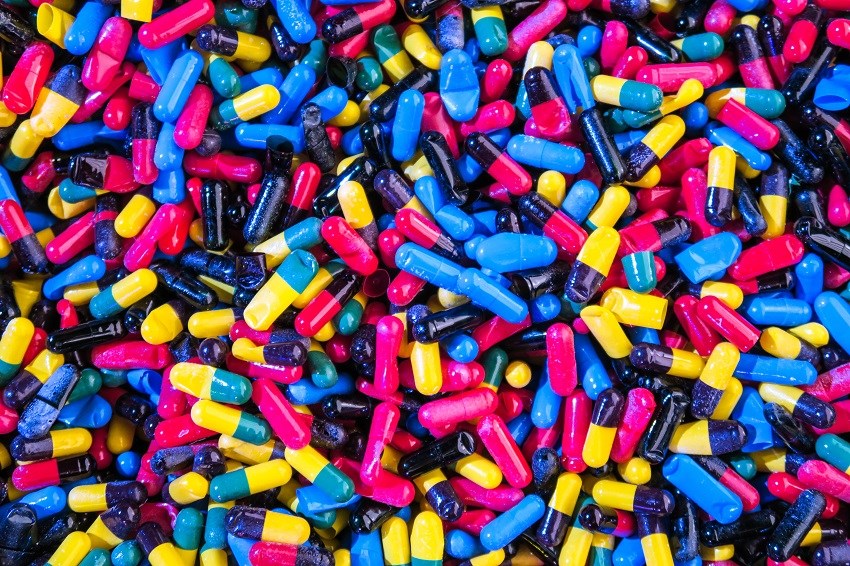
All eyes were on U.S. President Donald Trump and First Lady Melania Trump as they became the latest in a growing list of prominent figures who have tested positive for the dreaded coronavirus. These high-profile cases put the spotlight back on the race for coronavirus vaccine, particularly the antibody therapy that the U.S. president was administered at the Walter Reed military hospital.
Antibody drugs, derived from naturally occurring COVID-19 antibodies, work by galvanizing an immune defense by generating antibodies that help combat the coronavirus. Rather than wait for human system to produce antibodies and fight off pathogens, the therapy’s goal is to boost the immune system’s defenses to mount a robust response to infection. This could be particularly effective for patients with weak immune system which makes them susceptible to life-threatening cases of COVID-19.
Investors looking to take a shot at the coronavirus vaccine play, potentially a US$40 billion market, may want to keep tabs on these drugmakers that boast both a well-established and highly profitable portfolio of drug,s and a robust pipeline. Remember, though, their their COVID-19 treatments are still being tested and have not yet been cleared for widespread use by regulators.
| Regeneron Pharmaceuticals Inc | ||
| Ticker | REGN | |
| Current yield: | - | |
| Forward P/E: | 16.29 | |
| Price | US$595.93 | |
| Fair value: | US$500 | |
| Value | 20% premium | |
| Moat | Narrow | |
| Moat Trend | Positive | |
| Star rating | ** | |
| Data as of Oct 09, 2020 | ||
Biotech firm Regeneron Pharmaceuticals (REGN) develops treatments for eye disease, cardiovascular disease, cancer, and inflammation. The firm is also developing various antibody drugs in collaboration and independently.
The drugmaker has leveraged its monoclonal antibody research and development platform to become one of the few biotechs to successfully emerge as a profitable commercial operation. Regeneron recently announced it had submitted a request for emergency authorization to the Food and Drug Administration for its experimental antibody treatment, the therapy that was prescribed to President Donald Trump as part of his COVID-19 treatment plan.
Data from a trial of the coronavirus antibody cocktail, REGN-COV2, in nonhospitalized patients “reflects a strong profile and solid potential to benefit patients with high viral loads who have failed to form an immune response to the virus,” says a Morningstar equity report, noting that “based on the data, we’ve increased our assumed probability of approval for REGN-COV2 to 100% from 60%.”
Regeneron expects to have supply to treat 300,000 COVID-19 patients later this year as part of the US$450 million U.S. government contract, says Morningstar sector strategist, Karen Andersen, who recently upped the stock’s fair value from US$473 to US$500.
| AstraZeneca PLC ADR | ||
| Ticker | AZN | |
| Current yield: | 2.59% | |
| Forward P/E: | 22.99 | |
| Price | US$54.43 | |
| Fair value: | US$55 | |
| Value | Fairly valued | |
| Moat | Wide | |
| Moat Trend | Stable | |
| Star rating | *** | |
| Data as of Oct 09, 2020 | ||
U.K.-based AstraZeneca (AZN) sells branded drugs across several major therapeutic classes, including gastrointestinal, diabetes, cardiovascular, respiratory, cancer, and immunology. The firm generates the bulk of its sales from international markets, a third of which from the U.S.
The British-Swedish drugmaker is ramping up its efforts to develop antibody-based COVID-19 treatment, for which it has received US$1.2 billion in funding from the U.S. government, according to Reuters. The U.S. Government last week awarded a US$486 million to AstraZeneca to supply 100,00 doses of COVID-19 antibody treatment.
AstraZeneca and its partner, the University of Oxford, paused its Phase 3 vaccine trial briefly after a volunteer in the U.K. developed an unexplained illness. However, the company has since restarted its clinical trials in the U.K., Brazil, India, and South Africa, while its U.S. trials are on hold, as of Oct 09.
AstraZeneca’s strong pipeline of next-generation drugs is emerging as one of the strongest in the drug group. “The company is developing several key products that hold blockbuster potential,” asserts Morningstar sector director, Damien Conover, who recently raised the stock’s fair value from US$51 to US$55, based on strong data for immuno-oncology drug Imfinzi.
| GlaxoSmithKline PLC | ||
| Ticker | GSK | |
| Current yield: | 5.08% | |
| Forward P/E: | 12.53 | |
| Price | US$37.62 | |
| Fair value: | US$45 | |
| Value | 17% discount | |
| Moat | Wide | |
| Moat Trend | Stable | |
| Star rating | **** | |
| Data as of Oct 09, 2020 | ||
British pharma behemoth GlaxoSmithKline (GSK) develops drugs for treatments across several therapeutic classes, including respiratory, oncology, and antiviral, as well as vaccines and consumer healthcare products. Glaxo uses joint ventures to gain additional scale in other markets like HIV and consumer products.
GlaxoSmithKline is among several companies racing to develop monoclonal antibody treatments for COVID-19. The U.K.-based pharma major and Vir Biotechnology Inc. recently announced they were advancing their antibody drug into a final-stage clinical trial of COVID-19 patients at high risk of being hospitalized.
“As one of the largest pharmaceutical companies, GlaxoSmithKline has used its vast resources to create the next generation of healthcare treatments,” says a Morningstar equity report.
The company's innovative new product lineup and expansive list of patent-protected drugs conspire to build a wide economic moat, or sustainable competitive advantage. Its diverse platform protects the company from weakness in any single product. “The magnitude of Glaxo’s reach is evidenced by a product portfolio that spans several therapeutic classes as well as vaccines and consumer goods,” says Conover, who recently upped the stock’s fair value from US$42 to US$45.
| Eli Lilly& Co | ||
| Ticker | LLY | |
| Current yield: | 1.93% | |
| Forward P/E: | 19.42 | |
| Price | US$155.55 | |
| Fair value: | US$154 | |
| Value | Fairly valued | |
| Moat | Wide | |
| Moat Trend | Stable | |
| Star rating | *** | |
| Data as of Oct 09, 2020 | ||
U.S. Pharmaceutical heavyweight Eli Lilly (LLY) makes a wide range of products focused on neuroscience, endocrinology, oncology, and immunology.
Eli Lilly recently requested U.S. FDA to authorize the use of its experimental antibody-based treatment for people with mild-to-moderate COVID-19 after the late-stage trails showed positive results. It is reported that, if cleared for use, the drug could be the first to treat less severe cases of COVID-19. More recently, Eli Lilly entered an agreement with the Bill & Melinda Gates Foundation to ensure access to Lilly’s COVID-19 antibody therapy for poorer countries.
On October 13, Eli Lilly's clinical trial testing an antibody treatment made has been paused because of a “potential safety concern,” according to the New York Times.
“Eli Lilly’s innovative culture and strong financial commitment to developing the next generation of drugs set the company apart from its peers and fuel its long-term growth,” says a Morningstar equity report, noting the firm’s “growth prospects are improving as the company is launching several new blockbusters and patent losses are fading.”
A conspiracy of patents, economies of scale, and a powerful distribution network underpin Eli Lilly’s wide moat. “Lilly's patent-protected drugs carry strong pricing power, which enables the firm to generate returns on invested capital in excess of its cost of capital,” says Conover, who recently increased the stock’s fair value from US$142 to US$154, prompted by strength from its new immunology drugs.























